
The West Coast Conference (WCC) — known as the California Basketball Association from 1952 to 1956 and then as the West Coast Athletic Conference until 1989 — is a collegiate athletic conference affiliated with NCAA Division I consisting of nine member schools across the states of California, Oregon, and Washington.

The UCLA Bruins are the athletic teams that represent the University of California, Los Angeles. The Bruin men's and women's teams participate in NCAA Division I as part of the Big Ten Conference and the Mountain Pacific Sports Federation (MPSF). For football, they are in the Football Bowl Subdivision of Division I. UCLA is second to only Stanford University as the school with the most NCAA team championships at 124 NCAA team championships. UCLA offers 11 varsity sports programs for men and 14 for women.

The Oklahoma State Cowboys and Cowgirls are the intercollegiate athletic teams that represent Oklahoma State University, located in Stillwater. The program's mascot is a cowboy named Pistol Pete. Oklahoma State participates at the National Collegiate Athletic Association (NCAA)'s Division I Football Bowl Subdivision (FBS) as a member of the Big 12 Conference. The university's current athletic director is Chad Weiberg, who replaced the retiring Mike Holder on July 1, 2021. Oklahoma State has won 55 national championships, including 53 NCAA team national titles, which ranks sixth in most NCAA team national championships. These national titles have come in wrestling (34), golf (11), cross country (5), basketball (2), and baseball (1), and the Cowboys also claim non-NCAA national titles in football (1) and equestrian (1). In addition, Oklahoma State athletes have won 183 individual national titles.
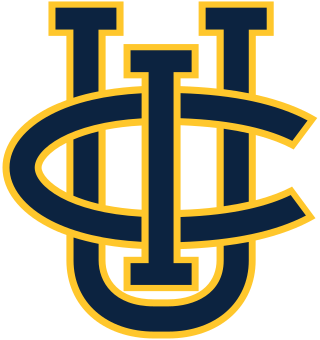
The UC Irvine Anteaters are the athletic teams fielded by the University of California, Irvine. Its athletics programs participate in the NCAA's Division I, as members of the Big West Conference and the Mountain Pacific Sports Federation. For earlier years of the school's existence, the teams participated at the Division II level with great success as explained below.

The San Diego State Aztecs are the intercollegiate athletic teams that represent San Diego State University (SDSU). The Aztecs compete in NCAA Division I (FBS) as a member of the Mountain West Conference (MW); they will become a member of the Pac-12 Conference in 2026. The Aztec nickname was chosen by students in 1925; team colors are scarlet (red) and black. The university currently fields 17 varsity teams.

The San Jose State Spartans are the intercollegiate athletic teams that represent San José State University. SJSU sports teams compete in the Mountain West Conference at the NCAA Division I level, with football competing in the Football Bowl Subdivision (FBS).

The UC Santa Barbara Gauchos are the intercollegiate athletic teams representing the University of California, Santa Barbara. Referred to in athletic competition as UC Santa Barbara or UCSB, the Gauchos participate in 19 NCAA Division I intercollegiate sports with the majority competing in the Big West Conference. UCSB currently fields varsity teams in 10 men's and 9 women's sports.

The UIC Flames are the intercollegiate athletic teams that represent the University of Illinois Chicago, located in Chicago, Illinois, in intercollegiate sports as a member of the Division I level of the National Collegiate Athletic Association (NCAA), primarily competing in the Missouri Valley Conference (MVC) since the 2022–23 academic year. The Flames previously competed in the D-I Horizon League from 1994–95 to 2021–22; in the D-I Mid-Continent Conference from 1982–83 to 1993–94; as an NCAA D-I Independent during the 1981–82 school year; and in the Chicagoland Collegiate Athletic Conference (CCAC) of the National Association of Intercollegiate Athletics (NAIA) from 1949–50 to about 1980–81.

The Grand Valley State Lakers are the intercollegiate athletic teams of Grand Valley State University, located in Allendale, Michigan, United States. The GVSU Lakers compete at the NCAA Division II level and are members of the Great Lakes Intercollegiate Athletic Conference (GLIAC).
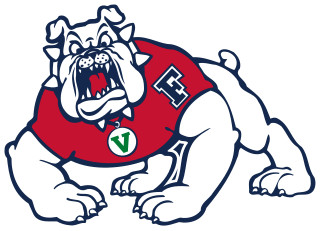
The Fresno State Bulldogs are the intercollegiate athletic teams that represent California State University, Fresno. The university is a member of NCAA Division I's Mountain West Conference (MW). It was a member of the Western Athletic Conference from 1992 until 2012, when it left for the Mountain West alongside fellow WAC member Nevada.

The Loyola Marymount Lions are the athletic teams that represent Loyola Marymount University, a Jesuit institution in Los Angeles, California. The school competes in NCAA Division I and the West Coast Conference.
Merrill M. Moses is a United States Olympic silver medalist, three-time Olympian, and three-time Pan American Games gold medalist water polo goalkeeper. He played college water polo for Pepperdine University, where he was an All-American and helped lead the team to the 1997 NCAA Men's Water Polo Championship. Moses is now associate head coach in water polo at Pepperdine.
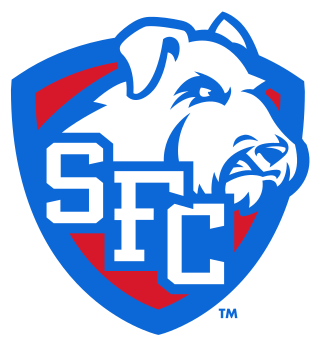
The St. Francis Brooklyn Terriers were the 21 teams that represented St. Francis College in athletics. The Terriers were members of NCAA Division I and participated in the Northeast Conference (NEC) except in two sports that the NEC does not sponsor—men's and women's water polo. The water polo teams respectively competed in the Collegiate Water Polo Association and the Metro Atlantic Athletic Conference.
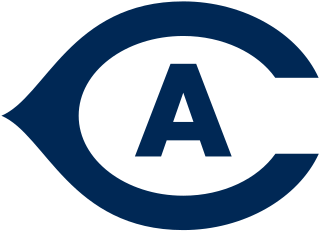
The UC Davis Aggies are the athletic teams that represent the University of California, Davis.
The Pepperdine Waves men's basketball team is an American college basketball team that represents Pepperdine University in NCAA Division I, the highest level of intercollegiate athletics sanctioned by the National Collegiate Athletic Association (NCAA). The Waves compete in the West Coast Conference and are coached by Ed Schilling. The Waves have competed in the NCAA Division I men's basketball tournament 13 times and are 3rd all-time in WCC Tournament wins and championships. The Waves most recently appeared in the NCAA tournament in 2002. Thirty-eight former Waves have been drafted or played in the NBA including Doug Christie and Dennis Johnson, an inductee of the Naismith Memorial Basketball Hall of Fame. The most recent Waves drafted into the NBA are Kessler Edwards (2021) and Maxwell Lewis (2023).
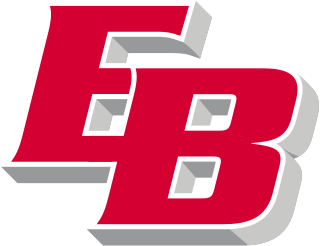
The Cal State East Bay Pioneers are the athletic teams that represent California State University, East Bay, located in Hayward, California, in intercollegiate sports as a member of the Division II level of the National Collegiate Athletic Association (NCAA), primarily competing in the California Collegiate Athletic Association (CCAA) for most of their sports since the 2009–10 academic year; while its women's water polo teams compete in the Western Water Polo Association (WWPA). The Pioneers previously competed in the California Pacific Conference of the National Association of Intercollegiate Athletics (NAIA) from 1998–99 to 2008–09.

The McKendree Bearcats are the intercollegiate athletic programs that represent McKendree University, located in Lebanon, Illinois, United States, in intercollegiate sports as a member of the NCAA Division II ranks, primarily competing in the Great Lakes Valley Conference (GLVC) as a provisional member since the 2012–13 academic year.
The Pepperdine Waves women's basketball team is the basketball team that represents Pepperdine University in Malibu, California, United States. The school's team currently competes in the West Coast Conference. The team's last appearance in the NCAA Division I women's basketball tournament was in 2006. Their home arena is the Firestone Fieldhouse, a multi-purpose facility that hosts basketball, volleyball, and many other athletic and university events. They share this facility with the Pepperdine Waves men's basketball team.

The 1997 NCAA Men's Water Polo Championship was the 29th annual NCAA Men's Water Polo Championship to determine the national champion of NCAA men's collegiate water polo. Tournament matches were played at the International Swimming Hall of Fame Aquatics Complex in Fort Lauderdale, Florida, during December 1997.

The 1999–2000 Pepperdine Waves men's basketball team represented Pepperdine University in the 1999–2000 NCAA Division I men's basketball season. The team was led by first-year head coach Jan van Breda Kolff. The Waves played their home games at the Firestone Fieldhouse and were members of the West Coast Conference. They finished the season 25–9, 12–2 in WCC play to win the regular season conference title. Pepperdine lost in the championship game of the West Coast Conference tournament, but did receive an at-large bid to the NCAA tournament as No. 11 seed in the East region. In the opening round, the Waves surprised No. 6 seed Indiana – in what would be head coach Bobby Knight’s final game at the school – before falling to Oklahoma State in the second round, 75–67.




























